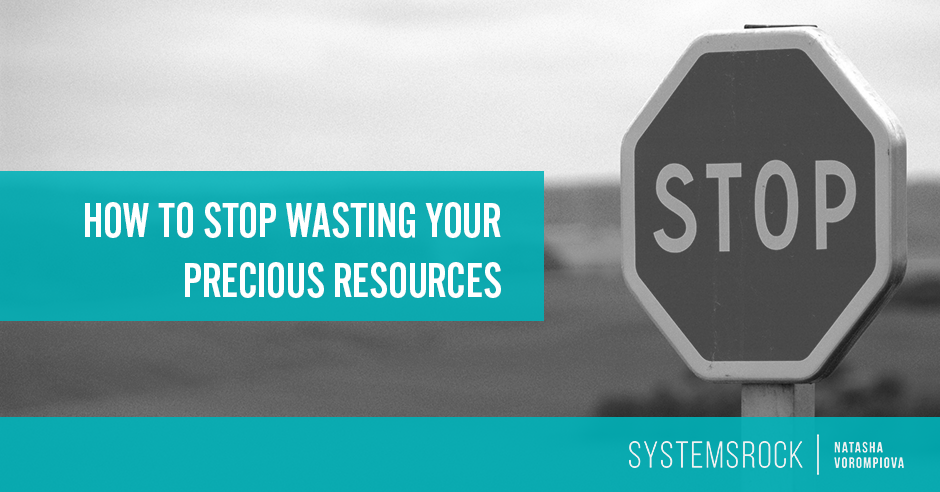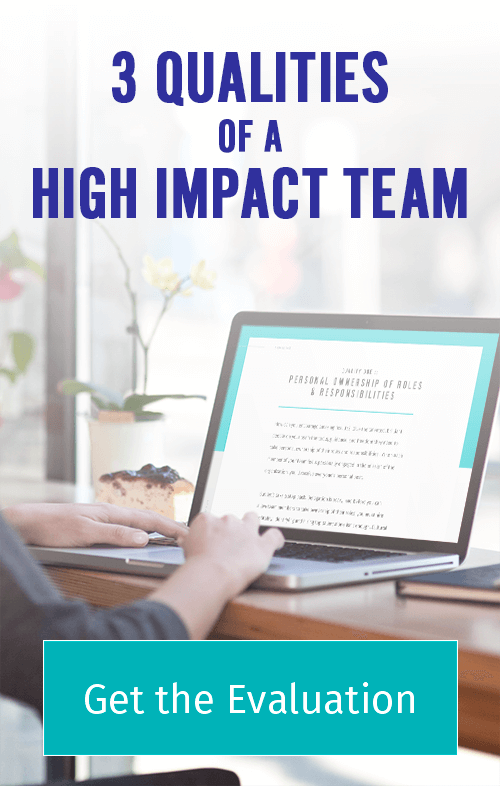Information, tasks, and distraction management are essential when you’re in the first stages of growing your business.
Pouring all your energy into finding clients and marketing your business to bring in money is very tempting, but here’s what it might cost you if you don’t tackle the essential systems.
DAMAGING COSTS
- 30 minutes a day wasted looking for information. When you lack information management systems, you’ll lose time searching for passwords, website addresses, and client proposals. That’s 3 hours a week, 168 hours a year, and nearly $17,000 (if your hourly rate is $100).
- 1 hour a day getting swept up in social media distractions. That’s 20 hours a month, 240 hours a year, and $24,000 if your hourly rate is $100.
- 75% drop in productivity due to switching back and forth between projects. According to Justin Davies, this means that out of an 8-hour workday only 2 hours are spent productively. That’s a loss of $600 a day and $145,000 a year if you’re hourly rate is $100.
Don’t squander your precious time, energy, and potential revenue!!! It’s so not worth it.
How to Stop Wasting Your Precious Resources
1. Double task (don’t multitask)
Multitasking is not the way to get more stuff done.
It slows you down because you’re interrupting your focus and productivity by switching from one task to another. More than that, multitasking lowers IQ by as many as 15 points.
So, avoid multitasking—doing two mental activities at once like watching TV while editing an e-book or talking to your husband while reading a client’s e-mail—at all costs.
If you HAVE to do two tasks at once, double task instead. What makes double tasking so efficient is that you engage in two different types of activities—a mental and physical one (e.g., listening to a podcast while working out).
Those types of activities don’t compete for the same resources, and that’s what makes them a good match.
2. Do the Last 5%
Have you ever. . .
- Prepared to send a launch e-mail, but left checking the links for later?
- Receive an e-mail with the date and time of a meeting, but didn’t bother to record it right away?
- Taken someone’s business card at an event and promised to get in touch, but didn’t add them to your task list to follow up?
- Started writing a response to an e-mail, but decided to finish it at another time?
I don’t think you need me to tell you how those stories end. I bet it’s a variation of:
- Rushing to resend the launch e-mail with “Working link” in the subject line
- Having to profusely apologize to a person you missed a meeting with
- Going to an event, seeing the person you forgot to follow up with and trying to avoid them the entire evening
- Finding your unfinished response in your Drafts folder 3 weeks later.
Next time when you catch yourself thinking “I’ll finish this at another time,” stop yourself, take a minute (because that’s how long it usually takes!) and complete the task.
No time to do it? Put it on a to-do list you regularly review.
3. Finish One Project Before Starting the Next One
Something that’s half done is not done at all.
A half-built car is not a car. A half-renovated restaurant is not a restaurant. A half-finished digital program is not a digital program. A half-designed website is not a website.
Unfinished projects cost you a lot. You are paying for the storage (physical or digital) AND these projects weigh on you emotionally.
Plus, every time you switch to doing something else, the carefully designed train of thought and reasoning constructed in your head falls apart. That’s why you dread going back to work on your projects when you have a bunch of them collecting dust—unfinished e-courses, books, and websites.
If possible, don’t start a project before you finish the previous one. If you can’t, break your projects into chunks that you can work on in sprints where you give each individual project your undivided attention.
4. Fight Distractions
Distractions are our kryptonite.
Our focus can be broken in a split second by a single thought. . . like remembering we didn’t finish something, realizing that we still need to do something, or having a new insight or idea.
Let’s not even mention e-mails, phone calls, kids, adults we share our workspace with, social media, and other things that can easily disrupt us.
Interruptions come at a price. According to one study, those distracted by incoming email and phone calls saw a 10-point drop in their IQ—more than twice that found in studies of the impacts of smoking marijuana.
Don’t become a statistic.
Create a list of things that distract you on a regular basis and devise strategies to fight them:
- Work on task list optimization if you feel that if you don’t take care of things immediately
- Start improving your “last 5%” if you’re frequently going back to fix things that weren’t completely finished (see my earlier point)
- Stop working with an open inbox and turn off notifications on your phone if you find yourself constantly interrupted by e-mail.
- Block social media if you can’t resist checking it. Use tools like Cold Turkey (Windows), StayFocusd (Chrome), or LeechBlock (Firefox)
- Let people know when you’re working on a project that requires no interruptions.
- Set up periods of time when your kids aren’t around to devote to maximum productivity projects so that you can give your little ones your full attention when they are around.
5. Get Rid of Unnecessary Tools
Do you know how many of the tools in your business toolbox you use only occasionally or not at all?
Every time we hear a story of an amazing tool that does wonders for someone else, we feel that we’ve got to have it as well.
We don’t think “Will it help me to simplify my business?” We think about adding, we think about fitting it in, we think about getting it to do one little thing.
Mastering all the tools we’ve got is sucking up our time, and we’re not making the best use of them. We’re spending hundreds—if not thousands—on tools that aren’t really making our business run smoothly.
Be intentional about the tools you select to run your business.
To Sum Up
As you can see, your personal systems don’t need to be intricate.
Simple things like stopping yourself from multitasking, completing tasks entirely, fighting distractions, working on one project at a time, and getting rid of unnecessary tools can save you a massive amount of time, money, and energy.
Back to You
Commit to one of the tips for the next 30 days to see the difference focusing on one simple thing can make.
Leave a comment below and share what you are going to commit to for the next month. I’d love you to come back in 30 days and share how it transformed your business.


